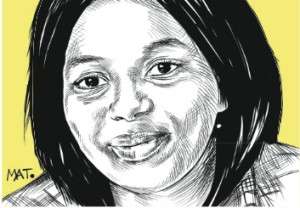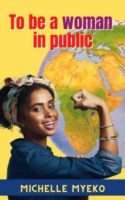Content Partner: Activate! Leadership for Public Innovation
One of the unsettling traits of our teenage democracy is that the public mood swings between the extremes of outrage and apathy. Callers on radio talk-shows rail against corrupt municipal officials or the size of potholes in the roads and then move on to the next gripe. Protesters toyi-toyi on the streets for a while and then sullenly resume their daily lives. Government responds by parachuting in high-level politicians to sort out the mess, slapping errant officials on the wrist and promising the good life for all. Then the cycle starts again.
Between apathy and outrage lies informed civic action, but the pendulum doesn’t stop there often enough – mainly because citizens feel they are not able to solve their own problems. It is, they think, out of their hands. Either they feel placated by the idea that things could be a lot worse or angry that they don’t get what they deserve or pay for.
Both apathy and outrage are symptoms of powerlessness, which is often caused by the fact that we do not have the necessary information to be active citizens – or that we don’t know how to use it effectively. Few of us can change our experience of service delivery because we are unaware of how much money was allocated for specific services and whether it was properly used. Our eyes glaze over when we hear of millions or billions being misappropriated because we can’t really imagine what that means – there are just so many noughts! When bad governance provokes us enough, all we can do is sputter outrage.
Lately, there has been much focus on the Protection of State Information Bill, and we have been told that it could prevent us from accessing government information that we should know; but even now it is hard to find official data. I live in Masiphumelele, a poor community squashed between Sun Valley and Kommetjie near Cape Town. My parents moved there in 1991, a year after Mandela was released. They were some of the first squatters on the land along with others who were moved from Simonstown and Bellville. I am passionate about improving the lives of the people of Masiphumelele -“Masi”, as it is known to its residents – and joined the Future Fighters programme of the Desmond Tutu HIV/Aids Foundation. This year I was nominated to be part of the leadership initiative called Activate! One of our first tasks as Activators was to better understand our communities and their official development plans.
I know my community well, so I thought that it would be easy to find someone who had access to the relevant information. But no one could help me. Nobody knew what was going on in their own backyard! So I went to the Civic Centre in Fish Hoek, which is responsible for services in Masiphumelele. Immediately, I was treated with suspicion. The lady at reception snapped at me: “Who are you to ask this information? Why do you want it?” I wasn’t rude or aggressive. I kept calm and just kept asking questions: What did the census say about Masi? How was it founded? What are the plans to get electricity to everyone in the community? She got increasingly irritated, but eventually gave me the details of a monthly municipal meeting and said I should ask the people there. I felt so relieved. It was a start and I was determined to follow the tracks until I had the information I needed.
Unfortunately, my excitement was short-lived. As I sat in the meeting, I realised that even though there was black skin in the room, there was no black voice in the debates. Even the Coloured community from Ocean View didn’t have a voice. The conversation was all about how to improve Fish Hoek High School’s sports fields. As the conversation continued, I got angrier and angrier! Yes, the young people of Fish Hoek needed good facilities, but why were the issues of my community any less important? The development agenda seemed so lop-sided.
I thought my experience was unique until I met with other Activate! participants at our next training, where I realised that the problems I had encountered were common to all of us. Itumeleng – a fellow Activator from Orange Farm – told me that the only document he could trace about his community was from 1996. No one in the municipality had more up-to-date information! Nobuhle and Justice told of their experience in Cosmo City, just north of Johannesburg. Cosmo City is a bustling new residential hub, which was developed as a mixed-income housing site in 2005.
It was meant to be an example of integration across social class, but the development has subtle distinctions that require explanation. For example, in the low-income housing area, the streets are named after African countries while the bonded properties line streets are named after American states like New York, Tennessee and Alabama. The Activators wanted to understand the thinking behind this, but everyone they tried to contact was unavailable. Finally they met with the Metro’s project manager for Cosmo City, but all he could tell them was that he had no statistics about the area and was still waiting for a budget to develop a profile of Cosmo City.
But it is not just government departments that are at fault. In Katlehong, another Activator, Philimon tried to meet with three non-government organisations (NGOs), but they all refused to meet with him until he had sent them his resumé. Lesego, who lives in the wealthy community of Fellside, found that rich people were just as wary. She was taking photos of the disparities between the leafy streets of Houghton, where the Kunene brothers live, and the potholed roads of nearby Orange Grove when a security guard rushed up to enquire what she was doing, as people had complained of a suspicious person on the street!
The dominant experience of Activators across the country is that information is difficult to obtain. When we set out, we didn’t know how hard it would prove to be ‘active citizens’, and how much resistance we would encounter from our political representatives and officials, non-government organisations and even private citizens. The problem wasn’t only restricted access, but public malaise as well: many officials stated that this was the first time a member of the public had approached them for such information!
In sharing our stories, we realised how little we knew about the real situation of our communities – the detail of the challenges they face, the resources that could be mobilised and the opportunities that could be exploited to improve life circumstances. This was a real wake-up call! Active citizenry is about developing a common vision of the country, city, town or rural area we want to live in – not just whining when services are not up to scratch. It is about people who know what all the noughts really mean when R20 million is siphoned from municipal coffers. It is about a society that expects openness and answers to tough questions, and doesn’t feel stymied by indifferent officials in plush offices or cowed by facetious fat-cats in big sedans. We need activists with substance if we are to move beyond the personality-politics that drives so much public debate.
At the same time, we must be careful that we don’t resuscitate the activist-versus-state antagonism of the past, because that would only lead to greater paranoia on both sides. There are committed politicians across the political spectrum and officials dedicated to development. Activators reported helpful school teachers and even a ward councillor in KwaMashu who sat for over an hour explaining what he knew and tried to make connections to people who could provide the right information.
But it’s a question of critical mass. If dedicated individuals constantly operate in environments where power is exercised by withholding information that affects people’s day-to-day lives, they will either eventually be co-opted by the system or leave to find more stimulating work. Ultimately, the success of the public sector depends on its willingness to be open to debate and scrutiny as it exercises its public mandate.
If we don’t start raising our voices and asking informed questions, how can we ever hold our leaders – in government, business and civil society – accountable? We live in a country where poverty and wealth live side-by-side. If we can’t quantify the disparities, how will we ever overcome them? If we leave it to the Hawks alone to uncover corruption, how much petty-theft from the poor will go unnoticed – and how massive will be the losses compounded across the country? More positively, if we don’t all share the same vision for our communities, how will we know how we can best contribute to realising that dream? Until we start asking the right questions, we might as well already be living under a repressive Secrecy Act.
***
Activate! Leadership for Public Innovation is a national network of young people committed to social transformation. United across race and class, they will develop the perspectives and skills of innovation needed to tackle some of South Africa’s most challenging social issues.
To find out more, contact Activate! on: info@activateleadership.co.za or www.activateleadership.co.za




